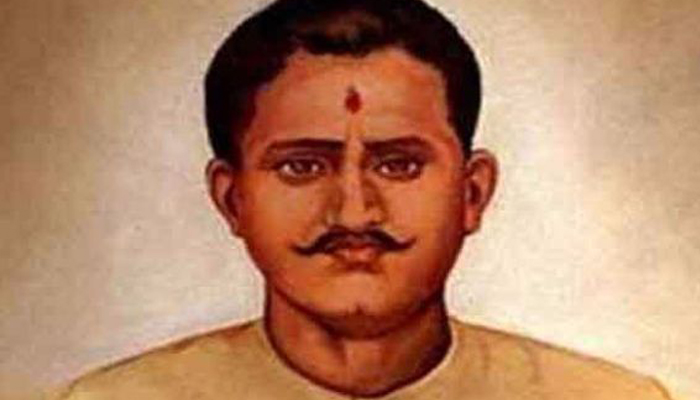TRENDING TAGS :
How the freedom fighter Ram Prasad Bismil got his last name | Check
A name that, I, as a child, read in many literature books and in historic text of Mainpuri conspiracy of 1918, and the Kakori conspiracy of 1925, the valor of young Ram Prasad Bismil left an unforgettable mark in my heart.
Lucknow: India is the land of warriors and brave-hearts who sacrificed their lives for the freedom of their motherland. When we talk about India's struggle for independence, thousands of name cross our mind but very few of them got registered in the glorious history of our nation.
A name that, I, as a child, read in many literature books and in historic text of Mainpuri conspiracy of 1918, and the Kakori conspiracy of 1925, the valor of young Ram Prasad Bismil left an unforgettable mark in my heart.
ALSO READ: Cyclone ‘Vayu’ to bring heavy rainfall in Gujarat; govt deploys NDRF
“Sarfaroshi ki tamanna ab hamare dil mein hai, dekhna ki zor kitna baazu-e-qatil mein hai.” (The desire for revolution is in our hearts, we shall see how much strength lies in the arms of the enemy.)
These immortal lines written by Bismil Azimabadi of Patna in 1921, were popularized by Ram Prasad Bismil as a war cry for India’s freedom struggle against the British rule.
As a patriotic poet he never failed to spark that feeling of patriotism that gives you goose-bump while reading his diverse writing style in Hindi and Urdu. He used the pen names Ram, Agyat and Bismil in his writings. Famously known by his pen name 'Bismil', Ram Prasad was an eminent writer who was a dear friend of Ashfaqulla Khan. Bismil used this pen name in his writings and got famous by it.
The main inspiration that was the source of his writings were his incomparable love for India, revolutionary spirit and a burning zeal to free India from the foreign rule.
Bismil published a pamphlet titled 'Deshvasiyon ke nam sandesh' (en: A message to my countrymen and also translated some of Bengali books while living underground, 'Bolshevikon Ki Kartoot' (en: The Bolshevik's programme) and 'Yogik Sadhan' (of Arvind Ghosh). Beside these a collection of poems 'Man Ki Lahar' (en: A sally of mind) and 'Swadeshi Rang' was also written by him.
His autobiography was published under the cover title of 'Kakori ke shaheed' by Ganesh Shankar Vidyarthi in 1928. A rough translation of this book was circulated as confidential document for official and police use throughout the country.
ALSO READ: UP CM behaving foolishly: Rahul on arrest of Kanojia, two others



